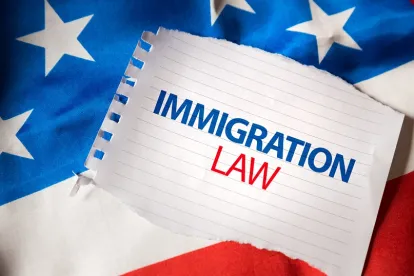On Nov. 7, 2019, the U.S. Citizenship and Immigration Services (USCIS) announced a final rule for a new, electronic registration process for the fiscal year H-1B 2021 cap season.
USCIS confirmed, on Dec. 6, that it had completed a successful pilot testing phase of the new registration process and its plan to implement the process in the next H-1B lottery. USCIS will provide step-by-step instructions on its website on how to use the registration system before opening it for the initial registration period in March 2020.
The new process is expected to reduce paperwork and provide cost savings to petitioning employers whose applications are not selected. However, the performance of the platform remains a mystery and could introduce new, unknown challenges for sponsoring employers.
The H-1B visa program allows U.S. employers to temporarily employ foreign workers in specialty occupations, i.e. those that require the theoretical and practical application of a body of highly specialized knowledge and the attainment of a bachelor’s degree or its equivalent as the minimum qualification for entry into the occupation; fashion models of distinguished merit and ability; or individuals providing services related to a Department of Defense (DOD) cooperative research and development project or co-production project.
Under the new registration process – which differs fundamentally from the prior years’ process – employers seeking to file H-1B cap petitions for the fiscal year 2021 cap season must first complete a brief online registration form and pay a $10 filing fee for each employee they want to sponsor during the designated period. The initial registration period will run from March 1-March 20, 2020. If, at the end of that period, USCIS determines that it has received more registrations than needed to reach the H-1B regular cap, it will randomly select a sufficient number of electronic registrations projected as needed to meet the cap.
USCIS proposes to select registrations no later than March 31, 2020. USCIS will then notify employers with selected registrations that they are eligible to file an H-1B cap-subject petition on behalf of the named beneficiary within the designated filing period. Only those employers with selected registrations will be eligible to file H-1B cap-subject petitions with USCIS.
In connection, on Dec. 2, the Department of Homeland Security (DHS) proposed a new rule regarding the registration requirements. If accepted, the rule would allow USCIS to give employers at least 60 days to properly file an entire H-1B petition for the named beneficiary. Along with notification of an employer’s registration selection, USCIS would indicate a filing location and the designated filing period during which the H-1B petition must be filed. Employers who fail to file a petition on behalf of the named beneficiary within the specified timeframe stated on the notice will forego eligibility to file an H-1B cap petition. Any petitions received after the 60-day deadline will be rejected by USCIS and returned to the employer.
In the unlikely event that that USCIS determines it has received fewer registrations than needed to meet the projected number of petitions to reach the H-1B regular cap during the initial registration period, USCIS will notify all registered petitioners that all registrations have been selected. USCIS will then continue to accept and select registrations, on a rolling basis, until a sufficient number are received to meet the H-1B regular cap.
USCIS warns that it will monitor the new registration system for potential fraud and abuse. Although petitioners can register multiple foreign nationals, duplicate registrations for the same beneficiary will be discarded. Additionally, employers will not be allowed to substitute beneficiaries once selected. The final rule will also require employers to attest to their intent to file an H-1B for the beneficiary in the position for which the registration is filed.
Employers intending to sponsor employees for the H-1B 2021 cap season should consider these changes and plan accordingly.






 />i
/>i

